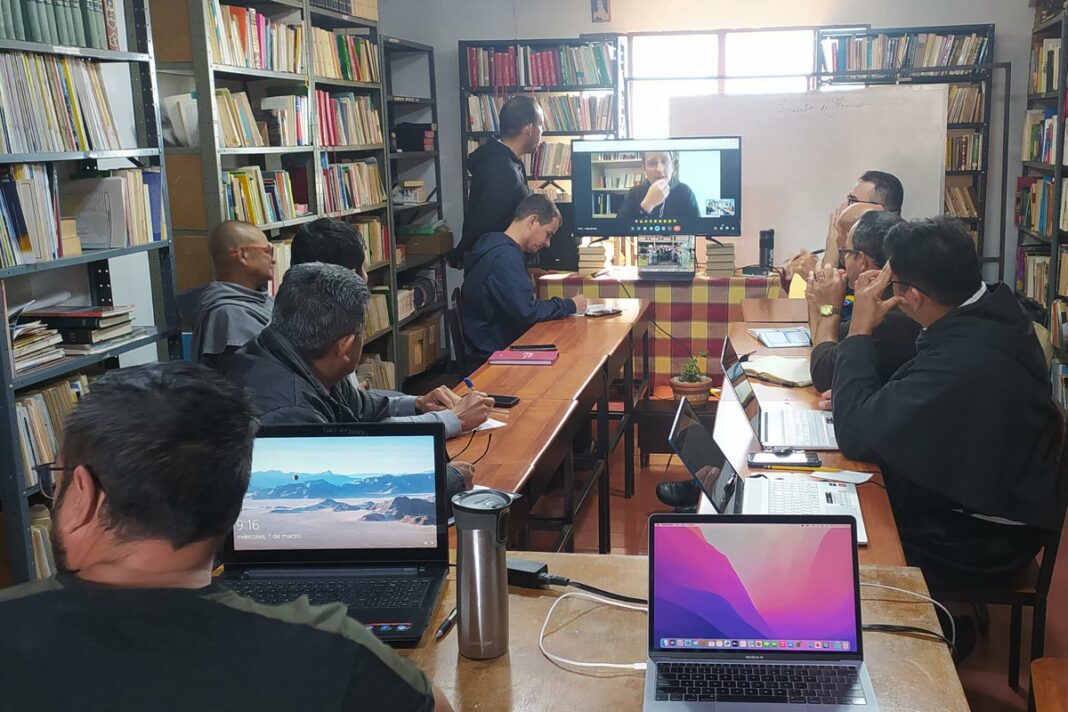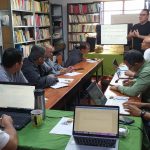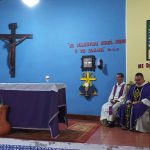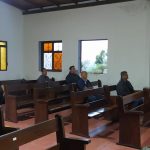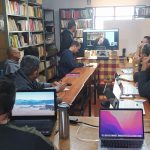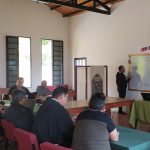From February 28 to March 1, 2023, the Provincial Custody of Our Lady of Coromoto in Venezuela conducted its second meeting for the formators of its postulancy and post-novitiate programs. The event took place at the San Antonio de Padua Friary in Mérida, Venezuela. The Custodial Definitory was also present.
The meeting began with a presentation by the Provincial Custos, Friar Franklin DURÁN ZAMBRANO. Friar Franklin focused on the idea of the Conventual Franciscan identity, specifically, on the current way we think of our charism, noting that our charismatic identity has to do with life and not just theory. If we have a clear understanding of our identity, then we can understand formation as a process that transfers content and methods that inform what we do at the intellectual, cultural and emotional level and imbue it with a dynamic that involves the spiritual, human, Franciscan, intellectual and pastoral aspects of our lives.
Next, the Assistant General for the Centralis Europae Foederatio (CEF), Friar Igor SALMIČ, gave a presentation on the Conventual Franciscan charism. He began with the teachings of the 1992 Extraordinary General Chapter in Mexico, which reflected deeply on our charism in the face of the phenomenon of religious around the world abandoning religious life. He mentioned one of the crucial conclusions of this Chapter, namely, that the fruitfulness of our religious life depends on the quality of our fraternal life in common. He pointed out that one of the key results of this Chapter was the first drafting of the Ratio formationis: Franciscan Discipleship. Finally, he presented the findings of a survey he conducted with men in formation from different countries on the reasons that motivated them to enter the Order. In short, they wanted to live their lives fully, in fraternity and minority. This shows the importance of our fraternal life in promoting and practicing our charism.
In the afternoon, Friar Juan G. MARTÍNEZ CANELÓN (a psychologist) gave a lecture entitled, “Assertive and Empathetic Communication.” He defined it as a psychological tool through which a person communicates and defends his rights and principles in front of others, in an honest way, without having to resort to aggression or passivity. In other words, it is the communication style that represents a balance point between aggressive and passive communication. Since dialogue is one of the practical ways we carry out the Conventual Franciscan charism, assertive communication is an effective resource in this process of a friar’s interpersonal development. It is a safe space where he can express his thoughts and feelings in an environment of tolerance, respect and mutual acceptance.
On the morning of March 1, Friar José Alberto SUÁREZ ALEMÁN (a specialist in Franciscanism) gave a lecture entitled, “Guiding Lives and Vocations: A Way of Teaching in Light of St. Francis and His Letter to Brother Leo.” He explained that the process of formational guidance implies a relational dynamic between the formator and the one being formed, which is based on the criterion of discernment that is animated by the Holy Spirit, faith and charity. This filial-communicative relationship is the first step on the path of guiding a vocation. In short, this proposal is based on the premise that the formator must see the young candidate before him as a brother, worthy of respect, and someone who must be helped to discover God’s will. The formator first exercises the role of a mother and second that of a son, as beautifully envisaged by St. Francis in his Rule for Hermitages. During this process, the formator is invited to encourage those being formed to discern how to respond to their vocation, based on responsible freedom, conviction and on living the values proper to the Conventual Franciscan lifestyle.
The meeting concluded with the friars meeting in groups and using the SWOT method, a formation tool used in Venezuela which involves examining Strengths, Weaknesses, Opportunities and Threats, in order to make a concrete evaluation of the formation progress made thus far during the 2019-2023 term and as a means of looking ahead toward the 2023-2027 term.
Friar Juan G. MARTÍNEZ CANELÓN, Custodial Secretary






